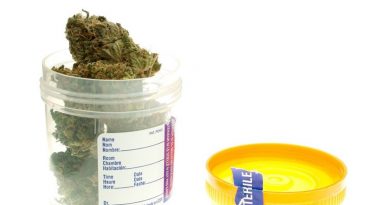Washington Considers Points Plan to Support War on Drugs Victims
Officials in the state of Washington are considering a new system which they hope will better serve the social equity goals of the state’s legal cannabis market. The plan includes a point system that would give those most impacted by the War on Drugs a better opportunity to earn a cannabis retail license.
It’s a new approach to an issue that other states have wrestled with in the past few years. Everyone now seems to understand the War on Drugs impacted people of color much worse than white people. During the height of the War on Drugs, the ACLU went as far as to call drug laws “the new Jim Crow.” Even now, the latest arrest records in some states show the racial disparity in drug-related arrests.
The challenge now is determining the best way to help Black and Latino business owners who want to enter the cannabis business.
Requirement to Apply For Social Equity Program
The Washington State Legislative Task Force on Social Equity in Cannabis, which makes recommendations to the Washington State Liquor and Cannabis Board, developed the ideas for the new program. It sets up a point system to determine if a cannabis license applicant fits the requirements for receiving preferential treatment from the state.
To apply for the social equity program, applicants must meet two of the three following criteria.
- Lived in a disproportionately impacted area (DIA) in Washington state for a minimum of five years between 1980 and 2010 (a DIA is an area with a higher rate of drug arrests)
- Either the applicant or a family member of the applicant must have been arrested or convicted of a cannabis offense
- The applicant’s household income is less than the median household for the state
The business must also have at least a 51 percent ownership by someone who has resided in Washington for six months before the application date.
How the Point System Works
The new language under consideration for the social equity program also includes a point system to rank applicants. For example, on a point scale of 40, an applicant would receive 20 points for living 10-plus years in a DIA or 10 points for living there between five to 10 years.
Other points in the system include:
- 40 points for conviction on a cannabis offense and 5 points for a family member convicted on a cannabis offense
- On an 80 point scale to assess cannabis penalties if convicted, applicants would receive 10 points for a fine, 20 points if they served probation, 40 points if confined to home, and 80 points if they served time in jail or prison.
- 5 points if they or their family member’s incarceration kept them from getting employment
- 5 points if they lost a home or ability to purchase or rent a home as a result of convictions or arrests
Applicants can score a potential 310 points. The higher the total, the better they score for inclusion in the social equity program.
If adopted by the state, the city of Seattle also plans to adopt the new system. The city plans to set aside $1 million for grant money to support applicants who are people of color. The reason is straightforward. “We recognize the disproportionality of the war on drugs on the Black community,” Brianna Thomas, Labor Relations Policy Advisor to Seattle Mayor Bruce Harrell, told Fox 13 in Seattle.




